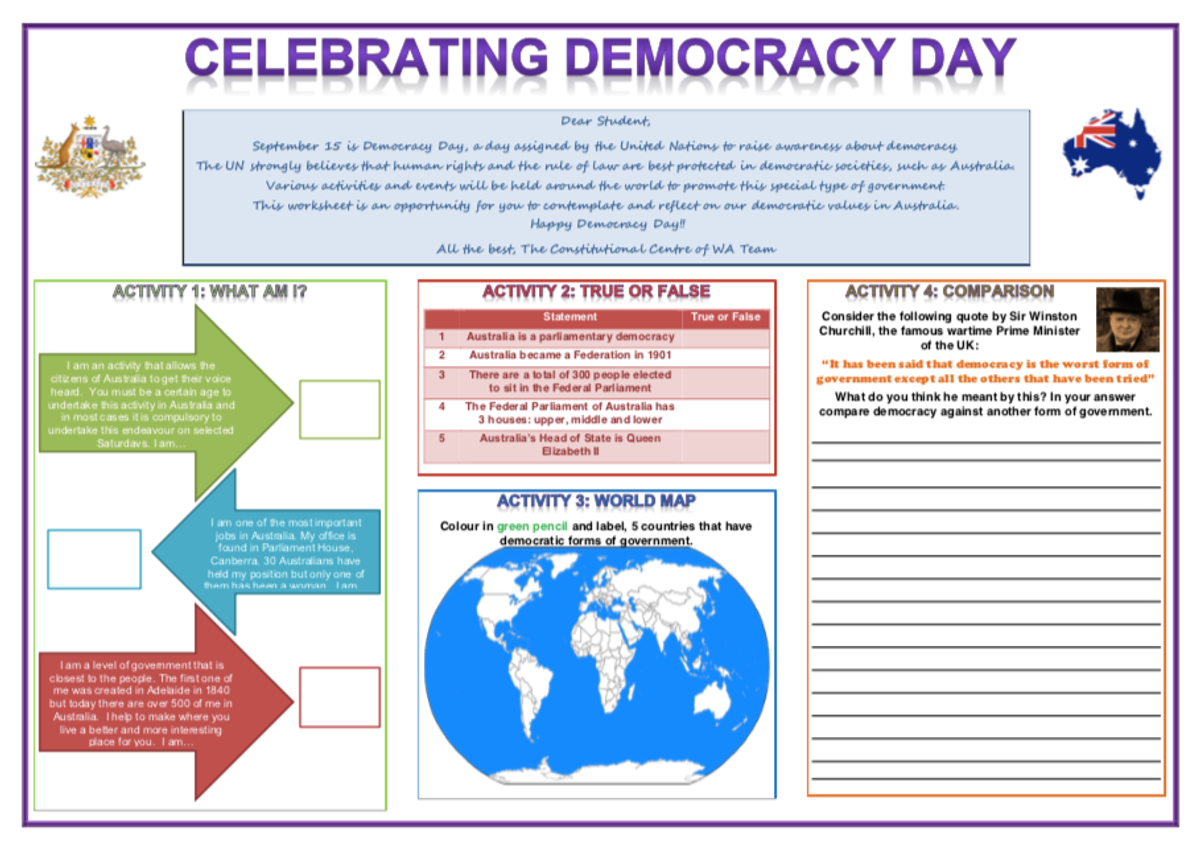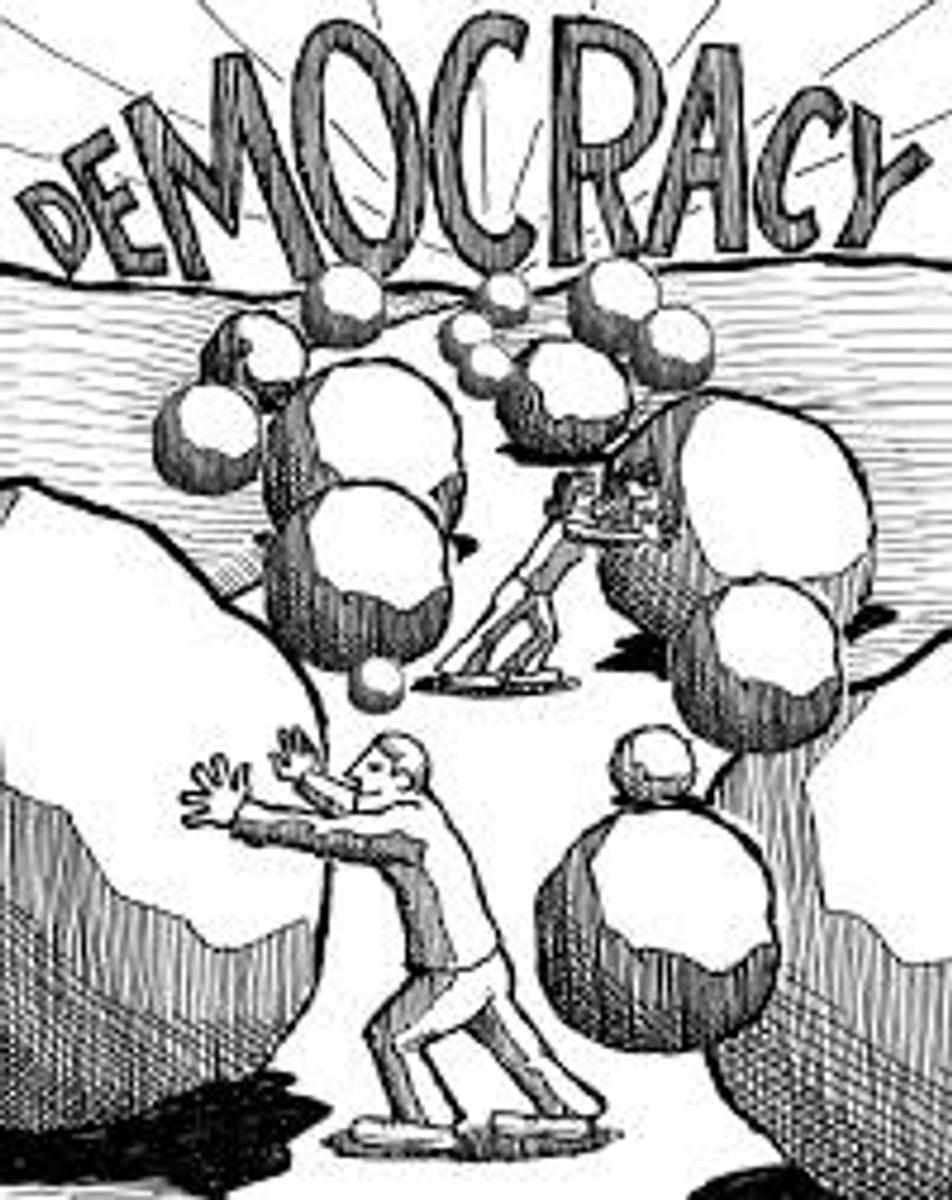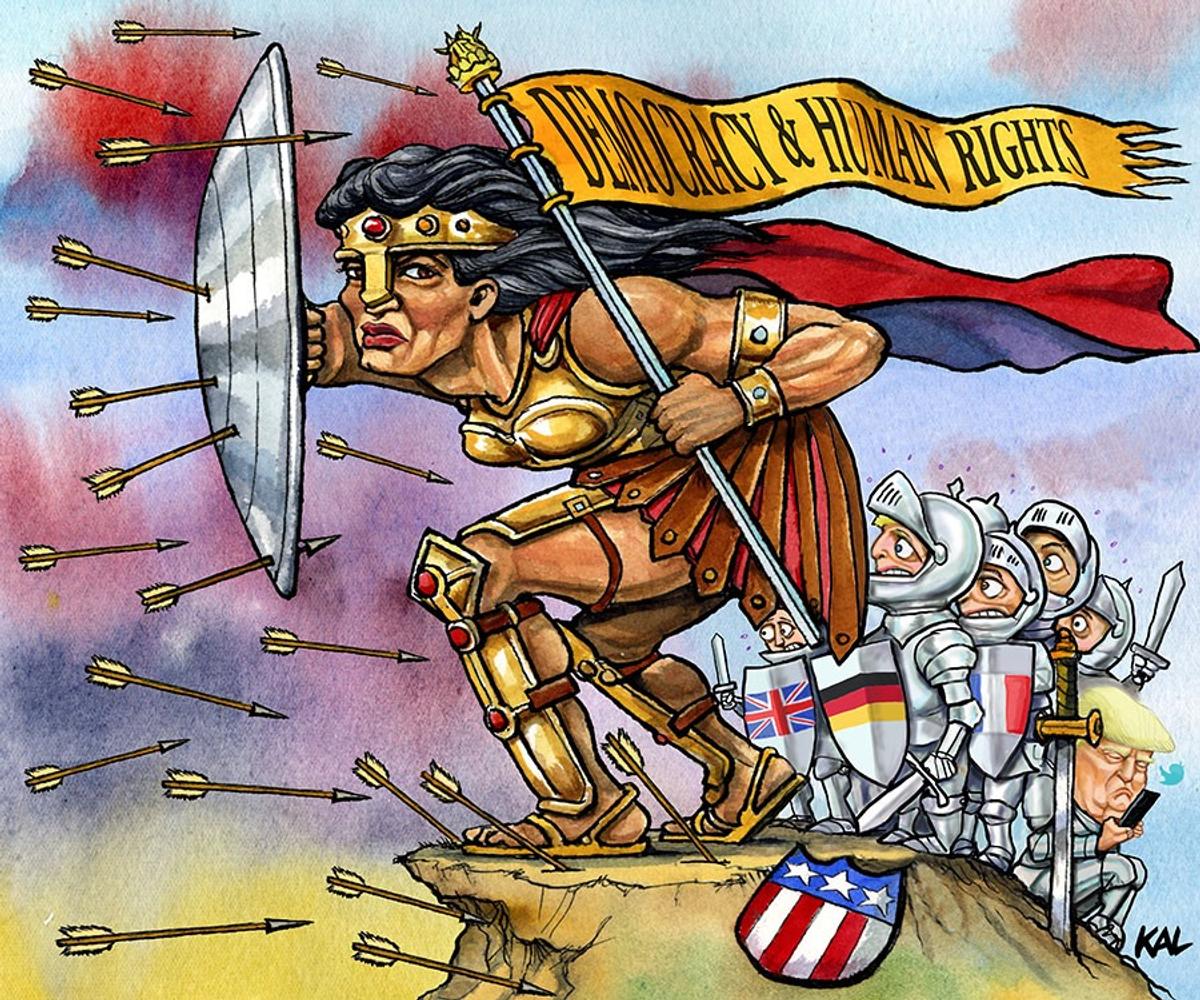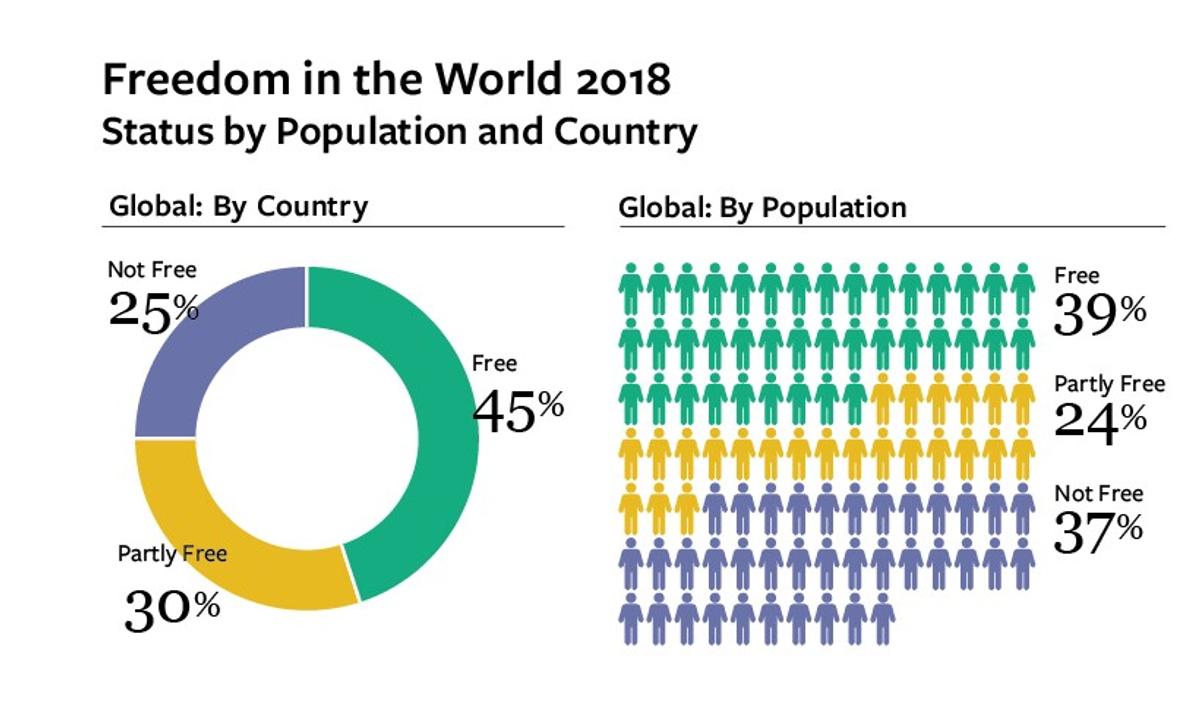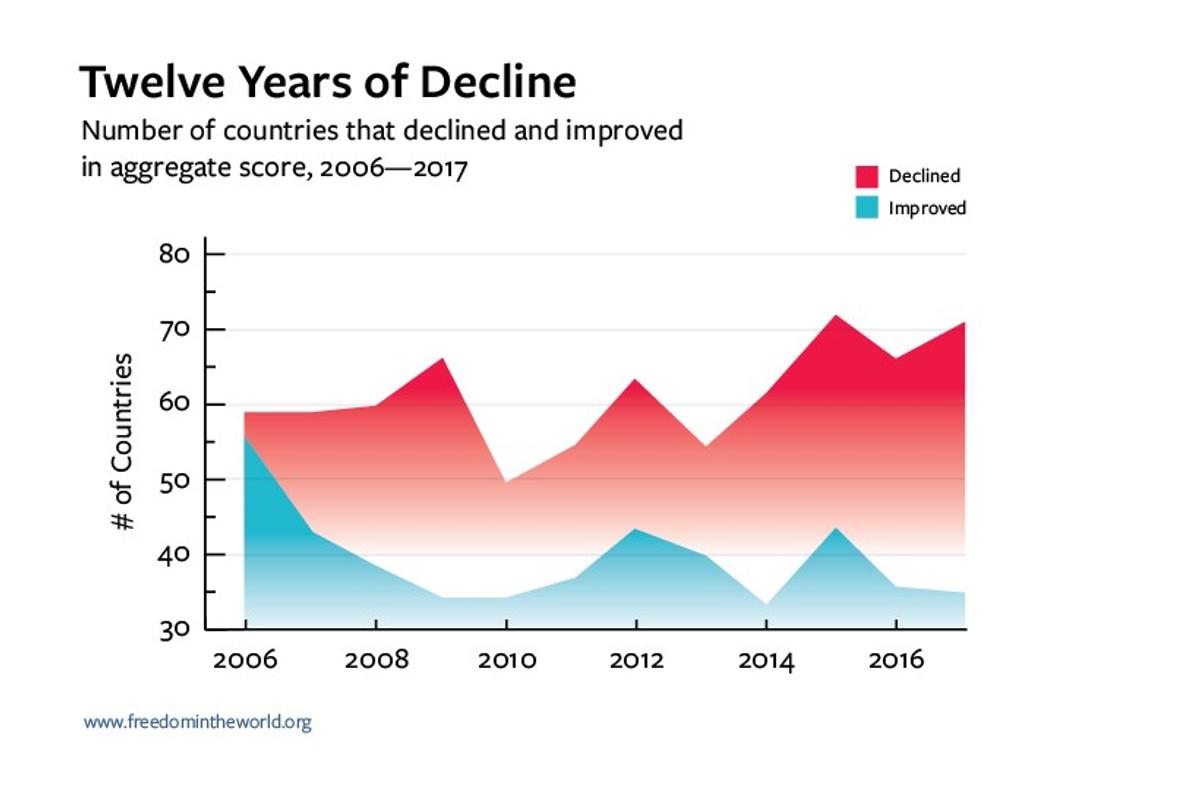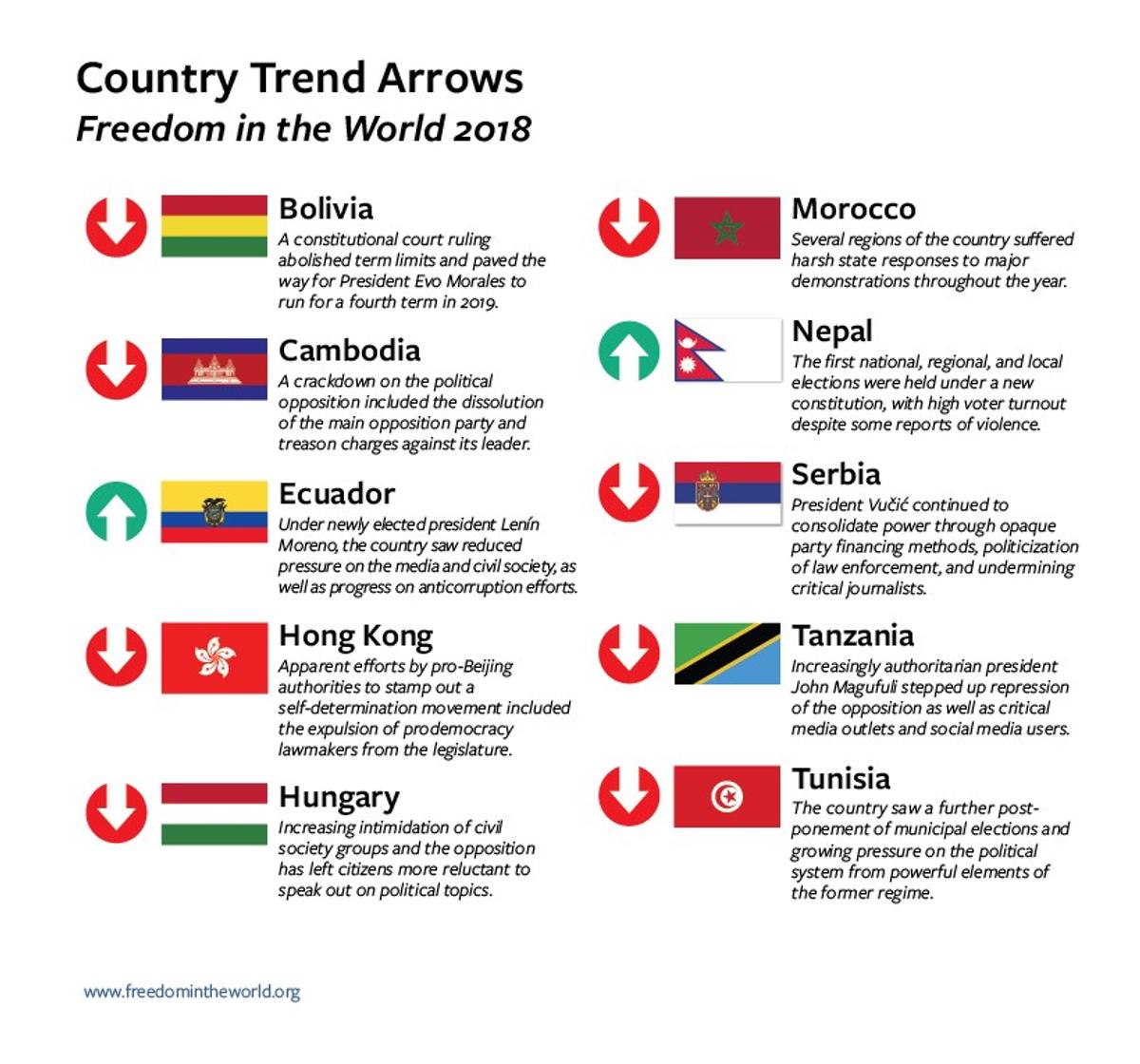Humanities and Social Sciences

2018 Democracy Day
Every year on the September 15, the United Nations celebrates these ideas on the International Day of Democracy.
Democracy is a universal value based on the freely spoken and expressed will of people to determine their own political, economic, social and cultural systems in all aspects of their lives. Evolved over centuries, democracies share many common features but cannot be reduced to a single model.
In short, democracy pertains to the idea that everyone has the right to have their own beliefs, and to say and write what they think. Even though democracy is a value shared by many, most countries in the word are still non-democratic and within traditionally democratic nations, some basic rights are under threat of violation or manipulation. According to Freedom House (NGO) approximately 45 per cent of humans live in a free society. The United Nations also declared that democracy is under attack. While it remains an ideal that most countries are seeking to realise, in too many countries progress on democracy has stalled.
There have been direct physical attacks to key institutions of democracy, including parliament, as well as renewed efforts by many governments to constrain political opposition in parliaments and civil society. Parliamentarians themselves have been silenced through physical threats, violent acts, or legal gimmicks. Electoral outcomes and policy-making are increasingly influenced by private interests that do not reflect the will of the people. As governments grow unresponsive to the people, protest movements are on the rise. Free and independent media, as well as social media, are being undermined.
Against this backdrop, 10 years since the adoption by the UN General Assembly of the International Day of Democracy a discussion on the very definition of democracy is timely. What, ultimately, constitutes a democratic political system and political culture?
Quite often, the answer to this question is that there is no one-size-fits-all, suggesting that it is up to each country to define democracy according to its own political culture and other specificities. This may be one reason why the United Nations itself has yet to endorse an official definition of democracy, although elements of what is commonly understood as democracy can be found in a number of declarations and agreements, including, most recently, Goal 16 of the Sustainable Development Goals.
Twenty years ago in September, the IPU, the world organisation of national parliaments, adopted the Universal Declaration on Democracy bringing together on a single page the key elements and principles of democracy. The Declaration was the subject of intense debate within the parliamentary community. Its significance in today’s context is that it seeks to do away with the relativism that pervades so much talk about democracy by establishing a conceptual standard for all countries to follow.
The Universal Declaration on Democracy makes it clear that while the practice of democracy may be negotiable in each country, for example, as in the choice of electoral system (proportional representation vs constituency system), different ways of election financing (exclusively public vs mixed public and private funding), different modalities of engaging with citizens and so forth, there is a bedrock set of principles and elements without which no country can claim the mantle of democracy.
Key Questions
- What is democracy according to you?
- Do we live in a democratic country? Why?
- What does this cartoon mean to you?
4. Which of the following freedoms do you value the most: Freedom of Speech, Freedom of Religion, or Freedom of Movement?
5. Try to complete the following activities. You are free to do them all, or to follow this structure:
Year 9-10: Activity 1 Year 7-8: Activities 2 and 3 Year 11-12: Activity 4
Choose one of the two videos:
Dr A Runco (Head of Learning Area - Humanities and Social Sciences)

